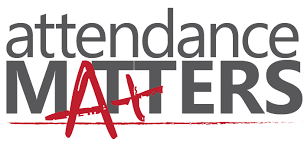So, you know you’re going to miss a meeting and you need to get a substitute. This article discusses how to properly prepare your sub to represent you at your BNI meeting along with some Best Practices (Dos) and some Not Recommended (Don’ts).
Best Practices –
(Dos)
1.
Plan
ahead. Line up some possible subs before
you need them. It is advisable to contact
at least five people and discuss with them that you would like to ask them the
favor of them to sub for you at your BNI meeting at some point in the future.
a.
By planning
ahead and talking with them before you actually need them, you can discuss
their availability. How much advance
notice they would need. This way you
know who you have to give advance notice to and who you can call at the last
minute.
b.
Read
the document/article ‘Who Makes a Good Substitute.’ In the article it gives a list of possibilities
with the first being someone who can fill a seat in the chapter.
c.
Discuss
with them what being a sub for you would entail.
d.
How
it would benefit them.
e.
Invite
them to attend before you need them as a sub so they will know first hand what
a meeting is like.
f.
When
you follow up with visitors, a good question to ask is, would you be open to
subbing for me in the future? Often
times visitors are eager to visit again and would welcome the opportunity to
sub.
2.
Set
Expectations. Part of the above discussion is also to set expectations with your
prospective sub.
a.
Let
them know that they would be expected to give your infomercial, which you will
supply to them in advance.
b.
The
day and time of the meeting and that they would be expected to arrive on time
and stay for the entire meeting. Explain
the benefit of getting there early for the open networking and to meet the
other members.
c.
Explain
they will also have the opportunity to give an infomercial about their business
provided their seat is not filled in the chapter. And be sure and let them know the time that
they will have for their infomercial, i.e. 30, 45, 60 seconds. You certainly want them prepared for you as
well as for themselves.
3.
Prepare
Your Sub. The time has come that you
know you’re going to miss a meeting.
a.
Call
one of your selected subs and give them as much advance notice as possible. Let them know the date you will be needing
them to sub.
b.
Gain
their confirmation
c.
Get
them registered in BNIConnect
d.
Send
them your infomercial right away. The
better prepared your sub is, the better your creditability will be with your
fellow Chapter members. And the more
open your sub will be to sub again in the future.
e.
Follow
up the week before and the day before to make sure everything is a ‘go.’
f.
Make
sure they are prepared.
i. Know the timeframe for the meeting.
ii. Know the location and have directions.
iii. To bring plenty of business cards.
Not Recommended
(Don’ts)
1.
Don’t
wait until the last minute unless it’s an emergency. If you do have to get a sub at the last
minute, hopefully you have someone on your list you can call at the last
minute, like your friend, relative, or a neighbor. If not, then that’s when you could use that
person from your office, but letting them know that if their business is the
same as yours, they will not be able to talk about their business. They will only be allowed to give your
infomercial.
2.
As
stated above, it is not recommended to have a sub whose business is already
represented in the Chapter because you lose creditability with your fellow members. This is an opportunity for you to build
creditability with your fellow members by having someone who can fill a seat in
the chapter or a consumer (like your neighbor, relative, or friend) or a client
who can give you a good testimonial.
Read the article – ‘Who Makes a Good Sub’ for a list of suggestions in
the order of selection.
3.
Don’t
use the same sub over and over.* In most
chapters, the recommendation and/or Chapter Rule is that a sub cannot sub more
than 3 times in a rolling six-month period for the entire chapter. Why? Because
more than this, the chapter is giving away the privileges of membership. Members have paid their membership fees and
are expected to meet certain requirements to be a member in good standing. By allowing subs to attend with no limit,
basically is giving away free membership.
The Community Builder needs to track member's attendance and also the
usage of subs. *This also needs to apply
to the person from the member’s office because some members are solopreneurs
and don’t have an admin or marketing person to ‘fill in’ for them so they need
to be abiding by the same criteria.
4.
On
the list of possible subs is someone from another chapter whose seat is not
filled in your chapter, while this is an option, it is way down on the list of recommended selections, like next to last.
Again, it’s about building your creditability with your fellow members
and Givers Gain. The first
recommendation should always be someone who can fill a seat in the
chapter. Someone you’ve possibly talked
to about visiting. Call and ask a
favor. A client who can give you a good
testimonial. A Friend, Relative,
Neighbor, i.e. a Consumer. Your sub does
not have to have a business of their own.
These make good subs because they can possibly use the services of the
other members and that’s referrals you are giving to the chapter.
5.
Don’t
use an absence because you failed to plan ahead and find a sub. There will be true emergencies like, getting
up sick or having a sick child, having a flat tire/car trouble on the way to
the meeting, etc. That is what the 3 absences
in a rolling six-month is intended for not a failure to plan ahead. Many times I have seen members use their
emergency absence when they should have planned ahead and then they have a true
emergency and it puts them at three absences.
Attendance is
very important in BNI to build creditability and build relationships with your
fellow members. A member who has 3
absences in six months, receives 73% less business.
Think of it in
terms of having a retail store and having to close the door of your business if
you can’t be there. How many times do
you think a consumer is going to recommend you or keep coming back when you’re
not open for business? While a sub does
not totally count as full attendance*, you’re at least represented at your
meeting. And by planning ahead and
providing a sub who can add value, adds to your credibility with your fellow members.
*Lates, Leave
early, and Subs count as .5 attendance on the Power of One reports.
Please check
with your Support Director for any questions about this information.
Resources:
BNI Podcast
#436 – Low Absences = More Referrals
BNI Podcast #
579 – Sub Abuse or is my chapter actually smaller
BNI Podcast
#490 – Show Up – Make Money
BNI Podcast
#329 – 80% of Success is Showing Up















